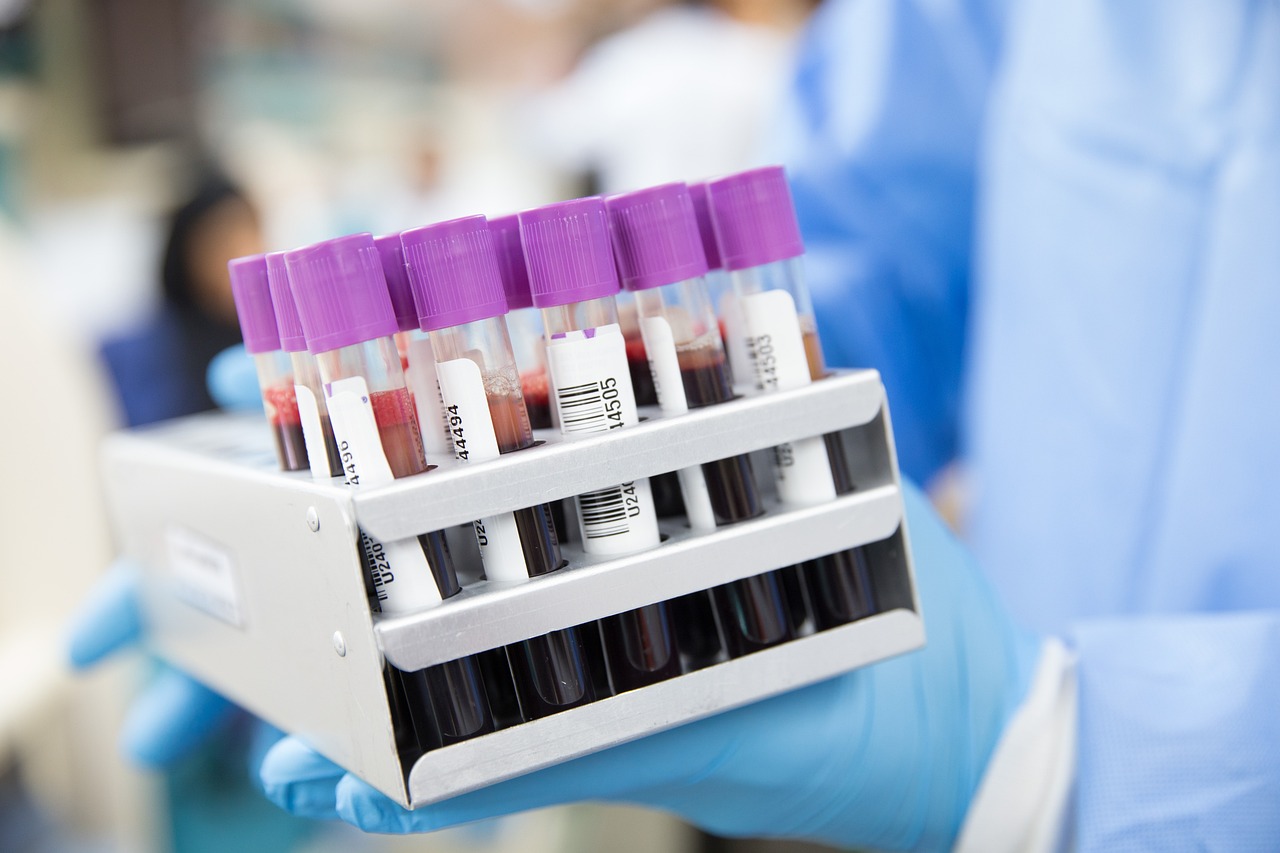Breakthroughs in Understanding the Human Microbiome
The human microbiome is a fascinating ecosystem of trillions of microorganisms that inhabit our bodies, primarily in the gut. Recent advancements in microbiome research have opened up new avenues for understanding its complexities and how these tiny organisms influence our health and well-being. Imagine the microbiome as a bustling city, where each microbe plays a unique role in maintaining balance and harmony. Just as a city thrives when its systems work together, our bodies depend on these microbial communities to function optimally. In this article, we will explore the latest breakthroughs in microbiome research, shedding light on its implications for health, disease prevention, and personalized medicine.
One of the most exciting aspects of microbiome research is its potential to revolutionize our understanding of health. Scientists have discovered that the microbiome plays a crucial role in various bodily functions, from digestion to immune response. For instance, gut bacteria help break down complex carbohydrates, producing short-chain fatty acids that nourish our cells and regulate inflammation. Furthermore, a balanced microbiome is essential for a robust immune system, as it teaches our bodies to differentiate between harmful pathogens and beneficial microbes. This intricate relationship is akin to a well-orchestrated symphony, where each instrument contributes to the overall harmony of the piece.
As we delve deeper into the world of the microbiome, it's becoming increasingly clear that imbalances in these microbial communities can lead to various health issues. Research has linked dysbiosis, or microbial imbalance, to conditions such as obesity, diabetes, and autoimmune disorders. It's as if the city's infrastructure has crumbled, leading to chaos and dysfunction. For example, a lack of diversity in gut bacteria has been associated with increased susceptibility to obesity, highlighting the importance of maintaining a healthy microbial ecosystem. Understanding these connections can empower us to take proactive steps in promoting our health through dietary and lifestyle changes.
One particularly intriguing area of research is the impact of the microbiome on mental health. The gut-brain axis, which describes the bidirectional communication between the gut and the brain, has garnered significant attention. Studies have shown that gut bacteria can influence mood, anxiety, and cognitive function. This connection suggests that our emotional well-being may be more intertwined with our gut health than we previously thought. Imagine your gut as a second brain, capable of sending signals that affect your mood and behavior. This revelation opens up new possibilities for treating mental health disorders through dietary interventions and probiotics.
Speaking of probiotics, these beneficial bacteria have been touted for their potential mental health benefits. Recent findings suggest that specific strains of probiotics can improve mood and reduce anxiety, offering exciting insights into therapeutic applications. It's like having a friendly neighbor in your microbiome who helps keep your spirits high! As we continue to explore the role of probiotics, we may find that they play a significant part in enhancing mental well-being and overall health.
In addition to their influence on mental health, the microbiome also plays a critical role in our body's stress response. Emerging research indicates that gut bacteria can affect how we respond to stress, potentially impacting mental health outcomes. Think of your gut bacteria as a team of stress managers, helping to regulate your body's reactions to life’s challenges. By understanding this connection, we can develop strategies to promote a healthier microbiome and, in turn, a more resilient response to stress.
Moreover, the immune system relies heavily on the microbiome for proper functioning. Microbial communities help train the immune system, teaching it to recognize harmful pathogens while tolerating beneficial microbes. This process is essential for preventing autoimmune disorders, where the immune system mistakenly attacks the body's own cells. A well-functioning immune system is like a vigilant security team, ensuring that only the right guests are allowed in while keeping the intruders at bay.
As we look to the future, the concept of personalized medicine is evolving alongside microbiome research. Individual microbiome profiles can inform tailored treatments, enhancing the effectiveness of therapies for various health conditions. This shift towards personalized healthcare is akin to crafting a bespoke suit; it fits the individual perfectly, addressing their unique needs and characteristics.
Advancements in microbiome testing technology are paving the way for these personalized health strategies. From stool samples to cutting-edge sequencing techniques, researchers are developing methods to analyze the microbiome and its implications for individualized healthcare. This progress holds the promise of more effective treatments and interventions that cater to the specific needs of each person.
Looking ahead, the future of microbiome research is promising, with ongoing studies aimed at unraveling the complexities of human microbial communities. As we continue to explore this intricate world, we may uncover potential breakthroughs that could transform our understanding of health and disease. The journey into the microbiome is just beginning, and the possibilities are as vast as the microbial universe itself.
- What is the microbiome? The microbiome refers to the collection of trillions of microorganisms, including bacteria, viruses, fungi, and other microbes, that inhabit our bodies, primarily in the gut.
- How does the microbiome affect health? The microbiome plays a crucial role in digestion, immune function, and mental health, influencing overall well-being and disease susceptibility.
- Can I improve my microbiome? Yes! A balanced diet rich in fiber, fermented foods, and probiotics can help promote a healthy microbiome.
- What are probiotics? Probiotics are live beneficial bacteria that can improve gut health and may have positive effects on mental well-being.
- What is personalized medicine? Personalized medicine tailors medical treatments to individual characteristics, including microbiome profiles, for more effective health outcomes.

The Role of the Microbiome in Health
Understanding how the microbiome contributes to overall health is crucial in today's world. The human body is home to trillions of microorganisms, mainly bacteria, that play a vital role in various bodily functions. These tiny allies are not just passive inhabitants; they actively participate in processes that keep us healthy. For instance, gut bacteria are essential for digestion, breaking down complex carbohydrates and synthesizing essential vitamins that our body cannot produce on its own. Imagine your gut as a bustling city where these microorganisms are the hardworking citizens, each with a specific job that contributes to the city's overall well-being.
Moreover, the microbiome significantly influences our immune system. A balanced microbiome helps the immune system differentiate between harmful pathogens and beneficial microbes, training it to respond appropriately. This training is vital in preventing autoimmune diseases, where the immune system mistakenly attacks the body’s own cells. A diverse microbial community acts as a protective barrier, ensuring that our immune system remains vigilant and effective.
But the benefits of a healthy microbiome extend beyond just physical health; they also touch our mental health. Recent studies have unveiled a fascinating connection between gut health and mood. The gut-brain axis, a communication network linking the gut and the brain, suggests that the state of our microbiome can affect our emotional well-being. For example, certain gut bacteria produce neurotransmitters like serotonin, often referred to as the "feel-good" hormone. It’s as if our gut has its own little factory of happiness, producing the chemicals that keep our spirits high.
Maintaining a balanced microbiome is essential. Factors such as diet, lifestyle, and even stress can disrupt this balance, leading to a phenomenon known as dysbiosis. Dysbiosis is associated with a range of health issues, from digestive disorders to chronic diseases. Therefore, nurturing our microbiome through a healthy diet rich in fiber, probiotics, and prebiotics can be a game-changer. Foods like yogurt, sauerkraut, and fiber-rich fruits and vegetables can help support a thriving microbial community.
In summary, the microbiome is a powerhouse of health benefits, influencing everything from digestion and immunity to mental well-being. As we continue to explore this intricate ecosystem within us, it becomes increasingly clear that taking care of our microbiome is not just an option; it’s a necessity for a healthier, happier life.
- What is the microbiome? The microbiome refers to the collection of trillions of microorganisms living in and on our bodies, particularly in the gut.
- How does the microbiome affect health? The microbiome plays critical roles in digestion, immune function, and even mental health, influencing overall well-being.
- What can disrupt the microbiome? Factors such as poor diet, stress, antibiotics, and lack of sleep can disrupt the balance of the microbiome.
- How can I support my microbiome? Consuming a diet rich in fiber, probiotics, and prebiotics can help maintain a healthy microbiome.

Microbiome and Disease Correlation
The connection between our microbiome and various diseases is a fascinating area of research that is gaining momentum in the scientific community. As we delve deeper into understanding the intricate web of microbial life within us, it becomes increasingly clear that these tiny organisms play a significant role in our health. Recent studies have shown that an imbalance in our gut bacteria can lead to a myriad of health issues, including obesity, diabetes, and autoimmune disorders. Just think of the microbiome as a bustling city; when everything is running smoothly, the city thrives, but when chaos ensues, problems arise.
One of the most compelling aspects of this research is how microbial diversity—or the variety of different bacteria present in the gut—can influence our susceptibility to disease. For instance, a diverse microbiome is often associated with better health outcomes, while a lack of diversity can lead to increased risk for conditions such as metabolic syndrome. This phenomenon underscores the importance of maintaining a balanced microbiome, akin to nurturing a garden where a variety of plants coexist harmoniously.
To illustrate this further, consider the following table that summarizes some key diseases linked to microbiome imbalances:
| Disease | Microbiome Impact |
|---|---|
| Obesity | Altered gut bacteria can affect metabolism and fat storage. |
| Diabetes | Microbial composition can influence insulin sensitivity. |
| Autoimmune Disorders | Dysbiosis may trigger inappropriate immune responses. |
But how exactly does this microbial imbalance occur? Factors such as diet, lifestyle, and even the use of antibiotics can disrupt the delicate ecosystem of our gut. For example, a diet high in processed foods and low in fiber can lead to a decrease in beneficial bacteria, paving the way for harmful strains to flourish. This imbalance not only affects our physical health but also has implications for our mental well-being.
Research has shown that individuals with certain diseases often exhibit distinct microbial profiles. For instance, individuals with inflammatory bowel disease (IBD) frequently have reduced diversity in their gut microbiota. This correlation suggests that monitoring and potentially restoring microbial balance could be a viable strategy for preventing or managing such diseases. It’s as if we’re beginning to understand that our gut health is a crucial piece of the puzzle when it comes to overall wellness.
In conclusion, the relationship between the microbiome and disease is a complex but critical area of study. As we continue to explore this correlation, it becomes evident that fostering a healthy microbiome could be key to preventing various health issues. By prioritizing a balanced diet rich in fiber, probiotics, and prebiotics, we can support our microbial friends and, in turn, enhance our overall health. After all, a thriving microbiome is like a well-tended garden, blooming with life and vitality.
- What is the microbiome? The microbiome refers to the collection of trillions of microorganisms, including bacteria, fungi, and viruses, that reside in and on our bodies, particularly in the gut.
- How does the microbiome affect disease? An imbalance in the microbiome can lead to increased susceptibility to various diseases, including obesity, diabetes, and autoimmune conditions.
- Can diet influence the microbiome? Yes, a diet rich in fiber, fruits, and vegetables can promote a healthy microbiome, while a diet high in sugar and processed foods can disrupt it.
- Are probiotics effective for health? Probiotics can help restore balance to the microbiome and may provide benefits for digestive health and even mental well-being.

Impact on Mental Health
The connection between our gut and our brain is becoming more than just a passing thought; it's a fascinating frontier in understanding mental health. Imagine your gut as a bustling city, filled with billions of microorganisms, all working together to keep the peace and maintain order. When everything is balanced, this city thrives, and so does your mental well-being. However, when the balance is disrupted, it can lead to chaos—much like a city facing an unexpected crisis.
Recent studies have illuminated the gut-brain axis, a communication highway between the gut and the brain, which suggests that the bacteria residing in our intestines can influence our mood, anxiety levels, and even cognitive functions. For instance, certain gut bacteria produce neurotransmitters like serotonin, which is vital for regulating mood. In fact, about 90% of the body's serotonin is produced in the gut, underscoring the importance of maintaining a healthy microbiome.
Research indicates that individuals with depression or anxiety disorders often exhibit a different composition of gut microbiota compared to those without these conditions. This raises intriguing questions about the role of diet and probiotics in mental health treatment. Could a simple change in diet or the introduction of specific probiotics help improve mood and reduce anxiety? The potential is exciting, and ongoing studies aim to uncover these answers.
Moreover, the impact of the microbiome on mental health extends to stress response. When faced with stress, our body activates a series of physiological reactions, and gut bacteria play a crucial role in modulating this response. For example, beneficial bacteria can help regulate cortisol levels, the hormone responsible for stress. A balanced microbiome may act as a buffer against the negative effects of stress, promoting resilience and emotional stability.
In summary, the intricate relationship between the microbiome and mental health is a thrilling area of research. It opens the door to new therapeutic approaches that could significantly enhance mental health treatments. By focusing on nurturing our gut bacteria through diet, probiotics, and lifestyle changes, we might just find a pathway to better mental health and emotional well-being.
- How does gut health affect mental health? Gut health impacts mental health through the gut-brain axis, where gut bacteria communicate with the brain, influencing mood and anxiety.
- Can probiotics improve mental health? Some studies suggest that specific probiotic strains may help improve mood and reduce anxiety, but more research is needed.
- What role does diet play in maintaining a healthy microbiome? A balanced diet rich in fiber, fruits, and vegetables can promote a diverse and healthy microbiome, which is essential for overall well-being.

Probiotics and Mental Health
In recent years, the spotlight has shifted to probiotics as potential game-changers in the realm of mental health. Imagine your gut as a bustling city, teeming with diverse microbial inhabitants, each playing a unique role in maintaining harmony. Just as a city thrives when its residents work together, our mental well-being is significantly influenced by the balance of these gut bacteria. Research suggests that specific strains of probiotics can enhance mood and alleviate symptoms of anxiety, acting as a natural supplement to traditional mental health treatments.
But how exactly do these tiny organisms exert such profound effects on our minds? The answer lies in the intricate gut-brain axis, a communication network linking our digestive system and brain. This connection allows gut bacteria to send signals that can influence neurotransmitter production, particularly serotonin, which is often dubbed the "feel-good" hormone. In fact, studies indicate that about 90% of serotonin is produced in the gut, highlighting the importance of maintaining a healthy microbiome for optimal mental health.
Moreover, the potential benefits of probiotics extend beyond just mood enhancement. They may also help in managing conditions such as depression and anxiety by:
- Reducing inflammation: Chronic inflammation has been linked to various mental health disorders. Probiotics can help regulate inflammatory responses in the body.
- Modulating stress responses: Certain probiotic strains may help the body respond better to stress, thus minimizing its impact on mental health.
- Improving cognitive function: Some studies suggest that probiotics can enhance memory and cognitive capabilities, providing a mental boost.
As we delve deeper into the world of probiotics, it’s essential to recognize that not all strains are created equal. Different strains have distinct effects, and ongoing research is crucial to identify which ones are most effective for specific mental health issues. For instance, Lactobacillus rhamnosus and Bifidobacterium longum have shown promising results in clinical trials, demonstrating their potential to positively influence mood and anxiety levels.
In conclusion, while probiotics are not a panacea for mental health challenges, they offer a fascinating glimpse into the potential of gut health to impact our minds. As more research unfolds, we may find that integrating probiotics into our daily routines could be a simple yet effective strategy for enhancing mental well-being. So next time you enjoy a yogurt or a fermented drink, remember that you're not just nourishing your body; you might also be giving your mind a little boost!
- What are probiotics? Probiotics are live microorganisms, often referred to as "good bacteria," that provide health benefits when consumed in adequate amounts.
- How do probiotics affect mental health? Probiotics can influence the gut-brain axis, potentially improving mood and reducing anxiety by modulating neurotransmitter production and inflammation.
- Can I get enough probiotics from food? Yes, foods like yogurt, kefir, sauerkraut, and kombucha are rich in probiotics and can contribute to a healthy gut microbiome.
- Are all probiotics the same? No, different probiotic strains have varying effects on health, and ongoing research is necessary to determine their specific benefits.

Microbiome and Stress Response
In recent years, scientists have begun to uncover the intricate relationship between the microbiome and our body's response to stress. Imagine your gut as a bustling city, where billions of microbes interact with each other and with your body's systems. Just like a city's infrastructure affects its residents, the health of your microbiome can significantly influence how you handle stress. When you experience stress, your body releases hormones like cortisol, which can disrupt the balance of these gut bacteria. This imbalance can lead to a cascade of effects, impacting not just your digestive health but also your mental well-being.
Research indicates that a healthy, diverse microbiome can act as a buffer against stress. For instance, certain beneficial bacteria produce short-chain fatty acids that help regulate inflammation and support brain health. This connection between gut health and stress response is often referred to as the gut-brain axis. It’s a two-way street: not only can stress affect your microbiome, but your gut bacteria can also influence your brain's response to stress. This phenomenon raises intriguing questions about how we might harness the power of our microbiome to improve our resilience to stress.
In a world where stress is often unavoidable, understanding the microbiome's role offers a glimmer of hope. For example, studies have shown that individuals with a more diverse microbiome tend to report lower levels of stress and anxiety. This suggests that nurturing our gut flora could be a key strategy in managing stress. Probiotics, which are live bacteria that provide health benefits, are being explored for their potential to enhance mood and reduce stress levels. However, it’s essential to remember that not all probiotics are created equal; specific strains may be more effective than others in modulating stress responses.
Moreover, the relationship between the microbiome and stress response is not just limited to mental health. Chronic stress can lead to gastrointestinal issues, further complicating the microbiome's health. For instance, stress can trigger conditions like irritable bowel syndrome (IBS), which is associated with alterations in gut microbiota composition. This creates a vicious cycle where stress affects gut health, which in turn can exacerbate stress and anxiety. Therefore, addressing microbiome health could be pivotal in breaking this cycle and promoting overall well-being.
As we continue to explore this fascinating field, it’s clear that the microbiome is more than just a collection of microbes; it’s a vital player in our overall health and stress management. Future research will undoubtedly reveal even more about how we can leverage our microbiota to enhance our resilience against stress and improve our mental health. By focusing on a balanced diet rich in fiber, fermented foods, and probiotics, we might just be able to cultivate a microbiome that supports not only our physical health but also our emotional well-being.
- What is the microbiome? The microbiome is a collection of trillions of microorganisms, including bacteria, viruses, fungi, and other microbes, that inhabit various parts of the body, particularly the gut.
- How does stress affect the microbiome? Stress can disrupt the balance of gut bacteria, leading to a decrease in microbial diversity and potentially causing gastrointestinal issues and mental health problems.
- Can probiotics help with stress management? Some studies suggest that specific strains of probiotics may help improve mood and reduce anxiety, but more research is needed to identify the most effective strains.
- What can I do to support my microbiome? A diet rich in fiber, fermented foods, and prebiotics can help support a healthy microbiome. Regular exercise and stress management techniques are also beneficial.

Microbiome and Immune Function
The intricate relationship between the microbiome and the immune system is a fascinating area of research that has garnered significant attention in recent years. Our bodies are home to trillions of microorganisms, primarily residing in the gut, which play a pivotal role in training and regulating our immune responses. These microbial communities act as a first line of defense, helping to distinguish between harmful pathogens and beneficial agents, thus maintaining a delicate balance that is crucial for our health.
One of the most compelling aspects of this relationship is the way the microbiome helps to develop our immune system, especially during infancy. Exposure to diverse microbial environments can enhance immune tolerance, reducing the risk of allergies and autoimmune diseases later in life. For instance, infants born via cesarean section often experience a different microbial exposure compared to those born vaginally, which can lead to variations in immune system development. This highlights the importance of early microbial exposure in shaping our immune profiles.
Moreover, specific strains of bacteria have been shown to produce metabolites that can directly influence immune function. For example, short-chain fatty acids (SCFAs) produced by gut bacteria during the fermentation of dietary fibers have anti-inflammatory properties. These SCFAs can regulate the activity of immune cells, promoting a balanced immune response. This means that a diet rich in fiber not only supports gut health but also enhances immune resilience. Here’s a quick look at some key SCFAs:
| Short-Chain Fatty Acid | Source | Immune Function |
|---|---|---|
| Acetate | Fermentation of dietary fibers | Regulates inflammation |
| Propionate | Whole grains, fruits, vegetables | Supports gut barrier function |
| Butyrate | Fermented foods, resistant starch | Enhances T-cell function |
Furthermore, the microbiome can modulate the immune response to vaccines. Studies have indicated that individuals with a more diverse microbiome may experience a stronger immune response to vaccinations. This suggests that the microbiome could be a critical factor in determining vaccine efficacy, which is especially important in our current landscape of global health challenges.
However, it's not all sunshine and rainbows; an imbalance in the microbiome, often referred to as dysbiosis, can lead to a compromised immune system. Factors such as poor diet, stress, and antibiotic use can disrupt this delicate balance, making us more susceptible to infections and diseases. Understanding the microbiome's role in immune function is essential for developing strategies to promote health and prevent disease.
In conclusion, the relationship between the microbiome and immune function is a complex dance that is crucial for maintaining health. By nurturing our microbiome through a balanced diet and healthy lifestyle choices, we can support our immune system and enhance our overall well-being. As research continues to evolve, we are likely to uncover even more ways in which our microbial companions influence our health.
- What is the microbiome?
The microbiome refers to the collection of trillions of microorganisms, including bacteria, viruses, fungi, and protozoa, that reside in and on the human body. - How does the microbiome affect the immune system?
The microbiome plays a crucial role in training the immune system, helping it to distinguish between harmful and beneficial pathogens, and producing metabolites that influence immune responses. - What can I do to support a healthy microbiome?
Eating a balanced diet rich in fiber, fermented foods, and probiotics can help maintain a healthy microbiome. - Can an imbalance in the microbiome lead to diseases?
Yes, dysbiosis, or an imbalance in the microbiome, has been linked to various health issues, including allergies, autoimmune diseases, and infections.

Personalized Medicine and the Microbiome
In the rapidly evolving landscape of healthcare, the concept of personalized medicine is emerging as a game-changer, particularly when intertwined with the fascinating world of the microbiome. Imagine a future where your healthcare is tailored specifically to your unique microbial makeup—sounds like science fiction, right? But the reality is that our individual microbiomes can significantly influence how we respond to treatments, making personalized approaches not just a possibility, but a necessity.
The human microbiome, which consists of trillions of microorganisms living in and on our bodies, plays a crucial role in our health. From aiding digestion to influencing our immune system, these tiny allies have a profound impact on our overall well-being. Recent research has shown that the composition of our microbiome can vary greatly from person to person, which can affect how we metabolize drugs, our susceptibility to diseases, and our responses to various therapies.
One of the most exciting aspects of microbiome research is the potential for tailored treatments. For instance, consider a patient with a chronic condition like diabetes. By analyzing their microbiome profile, healthcare providers can identify specific bacterial strains that may be beneficial or harmful. This information can guide the selection of medications or dietary changes that are more likely to be effective for that individual. It’s like having a customized roadmap to health!
Moreover, advancements in microbiome testing technology are paving the way for this personalized approach. Techniques such as metagenomic sequencing allow researchers to analyze the genetic material of microbial communities in detail. This not only helps in understanding the diversity of the microbiome but also in identifying potential biomarkers for diseases. With these insights, healthcare providers can create personalized health strategies that take into account an individual's unique microbiome.
However, the journey toward personalized medicine is not without its challenges. The complexity of microbial interactions and the sheer number of variables involved—such as diet, environment, and genetics—make it a daunting task. Yet, the potential benefits are enormous. For example, a study published in the journal Nature revealed that patients with specific microbiome profiles responded better to certain cancer treatments. This highlights the importance of considering the microbiome when designing treatment plans.
To illustrate the impact of microbiome diversity on personalized medicine, consider the following table:
| Microbial Profile | Condition | Recommended Treatment |
|---|---|---|
| High diversity | Obesity | Dietary changes, probiotics |
| Low diversity | IBD | Antibiotics, specific probiotics |
| Specific strains present | Diabetes | Metformin, dietary adjustments |
As we look to the future, the integration of microbiome analysis into routine healthcare could revolutionize how we approach treatment and disease prevention. Imagine a world where your doctor knows exactly which medications will work best for you based on your microbiome profile. This is not just a dream—it's a vision that is becoming increasingly attainable as research progresses.
In conclusion, the intersection of personalized medicine and microbiome research is a thrilling frontier in healthcare. With continued advancements in technology and a deeper understanding of microbial interactions, we are on the brink of unlocking new, effective pathways to health and wellness. The journey is just beginning, and the possibilities are endless!
- What is personalized medicine? Personalized medicine is an approach to patient care that tailors treatment based on individual characteristics, including genetic makeup and microbiome composition.
- How does the microbiome affect health? The microbiome influences digestion, immunity, and even mental health, playing a crucial role in overall wellness.
- Can microbiome testing guide treatment? Yes, microbiome testing can provide insights into which treatments may be more effective based on an individual's unique microbial profile.

Microbiome Testing
As the world of microbiome research expands, has emerged as a groundbreaking tool that offers insights into our unique microbial landscapes. Imagine being able to peek inside your gut and understand how your personal collection of bacteria influences your health! This is not just science fiction; it's becoming a reality through advancements in testing technologies. These tests analyze the composition of your microbiome, providing valuable information that can guide dietary choices, lifestyle changes, and even medical treatments.
Microbiome testing typically involves a simple stool sample, which is then analyzed using sophisticated DNA sequencing techniques. This process identifies the various species of bacteria present and their relative abundances. The results can reveal a lot about your gut health, including:
- Diversity of Microbial Species: A diverse microbiome is often associated with better health outcomes.
- Presence of Beneficial Bacteria: Certain strains are known to promote digestion and boost immunity.
- Potential Pathogens: Identifying harmful bacteria can help in understanding gastrointestinal issues.
Understanding your microbiome profile can empower you to make informed health decisions. For instance, if your test reveals a deficiency in beneficial bacteria, you might consider incorporating more probiotics into your diet through supplements or fermented foods like yogurt and kimchi. Conversely, if harmful bacteria are present, you could take steps to rebalance your gut flora, potentially improving digestive health and overall well-being.
Furthermore, microbiome testing is not a one-size-fits-all solution. Different individuals may respond differently to dietary changes or probiotics based on their unique microbiomes. Therefore, personalized recommendations derived from testing results can lead to more effective health strategies tailored to individual needs.
As research continues to evolve, the future of microbiome testing looks promising. With ongoing studies exploring the links between gut health and various health conditions, we can expect more refined testing methods that provide even deeper insights. Imagine a future where your gut bacteria can predict your risk for certain diseases or help tailor your treatment plans! This is not just a dream; it’s on the horizon as science continues to unlock the mysteries of our microbiome.
In summary, microbiome testing is a powerful tool that offers a window into our health. By understanding our unique microbial composition, we can take proactive steps towards better health, making it an essential aspect of personalized medicine.
1. What is microbiome testing?
Microbiome testing analyzes the composition of bacteria in your gut using a stool sample to provide insights into your health.
2. How can microbiome testing benefit me?
It can help you understand your gut health, identify beneficial or harmful bacteria, and guide dietary and lifestyle changes.
3. Is microbiome testing accurate?
Yes, microbiome testing utilizes advanced DNA sequencing techniques, providing reliable results about your gut microbial composition.
4. How often should I get tested?
It depends on your health goals and conditions, but many people consider testing once a year or when experiencing digestive issues.
5. Can I change my microbiome?
Yes, lifestyle changes such as diet, probiotics, and prebiotics can positively influence your microbiome.

Future of Microbiome Research
The is an exciting frontier in the realm of health sciences, promising to unlock secrets that could revolutionize our understanding of human biology. As we delve deeper into the intricate world of microbes, several key areas are poised for significant breakthroughs. For starters, the advent of advanced genomic technologies is enabling researchers to analyze microbial communities with unprecedented precision. This means we can now identify specific strains of bacteria and their unique functions within the human body, paving the way for tailored health interventions.
One of the most thrilling prospects is the potential for microbiome-based therapies. Imagine a future where your gut bacteria can be manipulated to enhance your immune response or even combat chronic diseases. Researchers are already exploring the possibility of using targeted probiotics, prebiotics, and even fecal microbiota transplants as therapeutic options for conditions like inflammatory bowel disease and metabolic disorders. The ability to personalize these treatments based on an individual’s microbiome profile could lead to more effective and less invasive healthcare solutions.
Moreover, the integration of artificial intelligence (AI) in microbiome research is set to transform our approach to data analysis. With the vast amounts of data generated from microbiome studies, AI can help identify patterns and correlations that human researchers might overlook. This could lead to new insights into how different microbial populations interact with each other and with their human hosts. Such advancements could enhance our understanding of the gut-brain axis, shedding light on how our microbiome influences not just physical health but also mental well-being.
As we look to the future, the collaboration between scientists, clinicians, and technologists will be crucial. Interdisciplinary research initiatives are already underway, aiming to bridge the gap between microbiome research and clinical applications. This collaboration may lead to the development of comprehensive microbiome databases that could serve as invaluable resources for researchers and healthcare providers alike.
In addition to therapeutic advancements, the role of diet and lifestyle in shaping the microbiome is gaining traction. Future studies are likely to explore how various dietary patterns, exercise routines, and lifestyle choices can influence microbial diversity and activity. Understanding these relationships could empower individuals to make informed choices that promote a healthy microbiome, ultimately enhancing overall health.
To summarize, the future of microbiome research holds immense potential. With ongoing advancements in technology, a focus on personalized medicine, and an emphasis on interdisciplinary collaboration, we are on the brink of a new era in health and wellness. The implications of these developments are vast, touching on everything from disease prevention to mental health, and they promise to change the way we view our bodies and our health.
- What is the microbiome?
The microbiome refers to the collection of trillions of microorganisms, including bacteria, viruses, fungi, and other microbes, that inhabit our bodies, particularly in the gut.
- How does the microbiome affect health?
The microbiome plays a crucial role in digestion, immune function, and even mental health. A balanced microbiome can contribute to overall well-being, while imbalances may lead to various health issues.
- Can I improve my microbiome?
Yes! Eating a diverse diet rich in fiber, fermented foods, and probiotics can help promote a healthy microbiome. Regular exercise and stress management are also beneficial.
- What are probiotics?
Probiotics are live bacteria that provide health benefits when consumed in adequate amounts. They are often found in fermented foods like yogurt and can help support gut health.
- Is microbiome research still ongoing?
Absolutely! Microbiome research is a rapidly evolving field, with new discoveries and applications emerging regularly.
Frequently Asked Questions
- What is the human microbiome?
The human microbiome refers to the vast community of microorganisms, including bacteria, viruses, fungi, and other microbes, that inhabit various parts of the human body, particularly the gut. These tiny organisms play a crucial role in our overall health, aiding in digestion, immune function, and even influencing our mood and mental health.
- How does the microbiome affect my health?
A balanced microbiome contributes significantly to your health by helping with digestion, supporting the immune system, and even impacting mental well-being. An imbalance in these microbial communities can lead to various health issues, such as obesity, diabetes, and autoimmune diseases. Essentially, a healthy microbiome is like a well-tuned orchestra, where each microbe plays its part in harmony.
- Can the microbiome influence mental health?
Absolutely! Recent studies have highlighted the gut-brain axis, which shows how gut bacteria can affect mood, anxiety, and cognitive functions. Think of it like a two-way street: your gut health can influence your brain, and vice versa. So, nurturing your microbiome can have positive effects on your mental well-being.
- What are probiotics, and how do they help?
Probiotics are live microorganisms that provide health benefits when consumed in adequate amounts. They help restore the balance of gut bacteria, which can be particularly beneficial for mental health. Certain probiotic strains have been shown to improve mood and reduce anxiety, making them a valuable addition to your diet for overall wellness.
- How can I maintain a healthy microbiome?
Maintaining a healthy microbiome involves a balanced diet rich in fiber, fruits, vegetables, and fermented foods like yogurt and sauerkraut. Regular physical activity, staying hydrated, and minimizing stress also play essential roles. Think of it as nurturing a garden; the right conditions will help your beneficial bacteria flourish.
- What is personalized medicine, and how does it relate to the microbiome?
Personalized medicine tailors medical treatment to the individual characteristics of each patient, and the microbiome plays a significant role in this approach. By analyzing an individual’s microbiome profile, healthcare providers can design targeted therapies that are more effective for specific health conditions, enhancing treatment outcomes.
- How is microbiome testing done?
Microbiome testing typically involves collecting a sample, often from stool, and analyzing it using advanced sequencing technologies. This analysis provides insights into the diversity and composition of your gut bacteria, helping to inform personalized health strategies and dietary recommendations.
- What does the future hold for microbiome research?
The future of microbiome research is incredibly promising, with ongoing studies aiming to unlock the complexities of microbial interactions and their effects on health. As we continue to learn more, we may discover new therapeutic applications and ways to harness the power of our microbiome to improve health outcomes.



















